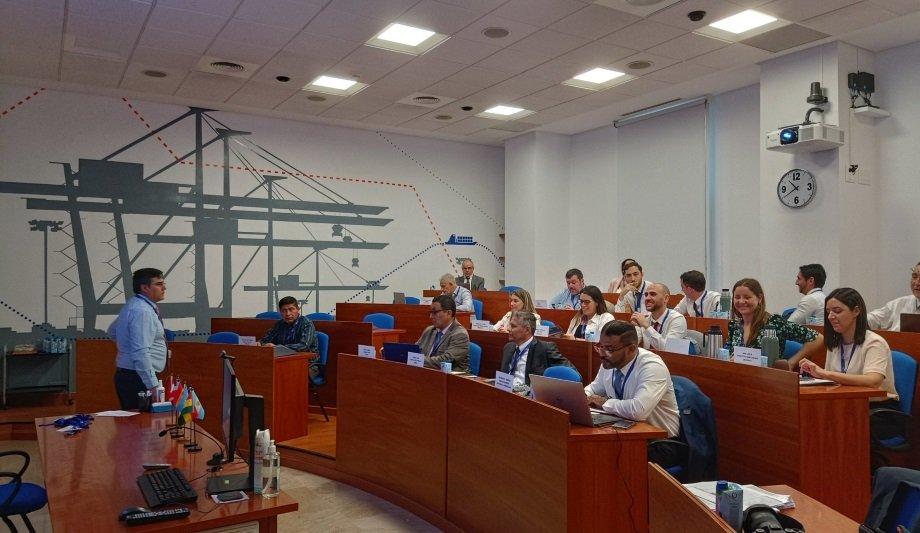The Port Authority of Valencia (PAV) is hosting the ‘Train For Trade’ port management programme, organised by the United Nations Conference on Trade and Development (UNCTAD). The programme, which has been given in Spanish since 2007 and in which the ports of Valencia, Gijón and Las Palmas are taking part, is attended by representatives of the port communities of Argentina, Uruguay, Bolivia and the Dominican Republic.
“It is a training workshop for port managers to prepare instructors from the countries taking part in the programme so that they can contribute their knowledge in the ports of their countries and teach them the port management models they are learning in the Port of Valencia,” explains Gonzalo Ayala, head of the UNCTAD Port Management programme for Latin America.
Future challenges for ports
For ten days, some twenty students from Argentina, Bolivia, the Dominican Republic and Uruguay have been trained at the Port of Valencia facilities with sessions given by logistics-port management professionals and PAV representatives. Vicente Jiménez, UNCTAD consultant and former head of Human Resources at the APV, and Gonzalo Ayala, UNCTAD technician, also participated as trainers.
Vicente Jiménez, UNCTAD consultant and former head of Human Resources at the APV
This programme is organised by UNCTAD and has the support of the Port Authority of Valencia (PAV), the Port Authority of Gijón and the Port Authority of Las Palmas. The Train For Trade programme consists of several modules: international trade and transport, the organisation of a port system, the functioning of a port system and future challenges for ports.
Evolution of international trade
Specifically, the international trade and transport module is being taught by Juan Manuel Díez-Orejas, head of Strategic Planning and Innovation of the PAV; Vicente Jiménez, UNCTAD consultant and former head of Human Resources of the PAV; and Luisa Escamilla, systems technician of the APV.
In this module, the participants will learn in depth about the relationship between ports and shippers, the international regulations governing them, the documents used, as well as the evolution of international trade. Likewise, the relationship between ports and shipping companies will be analysed, focusing on aspects such as the organisation of the sector, the strategies of the company and the factors included in the choice of ports of call.
Value-added activities
The module on the organisation of the port system will be given by Arturo Monfort
The module on the organisation of the port system will be given by Arturo Monfort, head of Infrastructure Planning and Port Development, and Pablo Montero, assistant to the management office. In it, the participants will learn about the role played by the ports, their position in the logistics chain, as well as the different forms of port organisation.
On the other hand, Celso Giménez, Commissioner of the Port of Sagunto, will give the module on the functioning of a port system. This module will deal with topics such as the services provided to ships and goods, as well as other value-added activities that port facilities can provide.
Technical assistance missions
Finally, the module on the future challenges of the ports will be given by Federico Torres, head of Ecological Transition; José Luis Aznar, of the Marca de Garantía. This module will deal with subjects such as the competitive advantages of the ports, safety and health in the port areas, social stability, environmental protection and quality management.
The Port Authority of Valencia has been collaborating with the United Nations Conference on Trade and Development (UNCTAD) in port training programmes since 2001. In 2007, both entities signed a collaboration agreement for the development of the Train for Trade port training programme in Spanish-speaking developing countries, which has included actions such as technical assistance missions to Latin American countries and the holding of seminars in Valencia, Gijón and Las Palmas.
